
The Role of the Home Care Nurse: Responsibilities & Duties
Some patients may be elderly, ill or disabled, or may be recovering from surgery, injury or accident. Also, as people age and some of their abilities decrease and their children tend to do their work more, the need for a home care nurse is felt more than ever. But what does a family nurse practitioner do? What specialties are needed and how is the role of the home care nurse generally determined?
Description of home care nurse duties and responsibilities is to provide ongoing care and maintenance for the elderly. These include providing medical, health and psychological care. The home care nurse must be able to diagnose and manage the medical and health issues of the elderly; in addition, providing medications, measuring and monitoring physical condition, controlling symptoms of disease and monitoring medical issues are among the main duties of the home care practitioner.
Apart from the medical issues of the elderly and those under care, they must also pay attention to the psychological issues of the elderly. Meanwhile, talking and empathizing with elderly people can greatly reduce the level of anxiety and depression and completely eliminate the feeling of loneliness in the elderly. Providing for the daily needs of the elderly such as assistance with personal hygiene, nutrition, movement and daily activities are other issues that the geriatric nurse is responsible for. In this article from the humanhealthmag, we will comprehensively discuss the role of home nurse in senior care and private nurse job description.
What Is a Geriatric Nurse?
Home care nurses and caregivers have the necessary knowledge and experience to respond to the needs of the elderly and provide the necessary care. The main role of the home care nurse is to maintain and improve the health and well-being of the elderly. Other duties of a home care nurse include performing the daily tasks of the elderly such as personal hygiene, proper nutrition, adjusting medications, continuing therapies, and assisting with daily activities. They also monitor and supervise the physical and mental condition of the elderly and, if necessary, cooperate with doctors and other members of the treatment team.
The Importance of Home Care for the Elderly
One of the main reasons for choosing a home care provider is to respect the dignity and value of these individuals in society. Elderly people have dedicated their entire lives to working and have the right to be cared for and loved with respect and dignity in their old age. Home care allows seniors to live in a familiar and pleasant environment with their families and enjoy being with their loved ones.
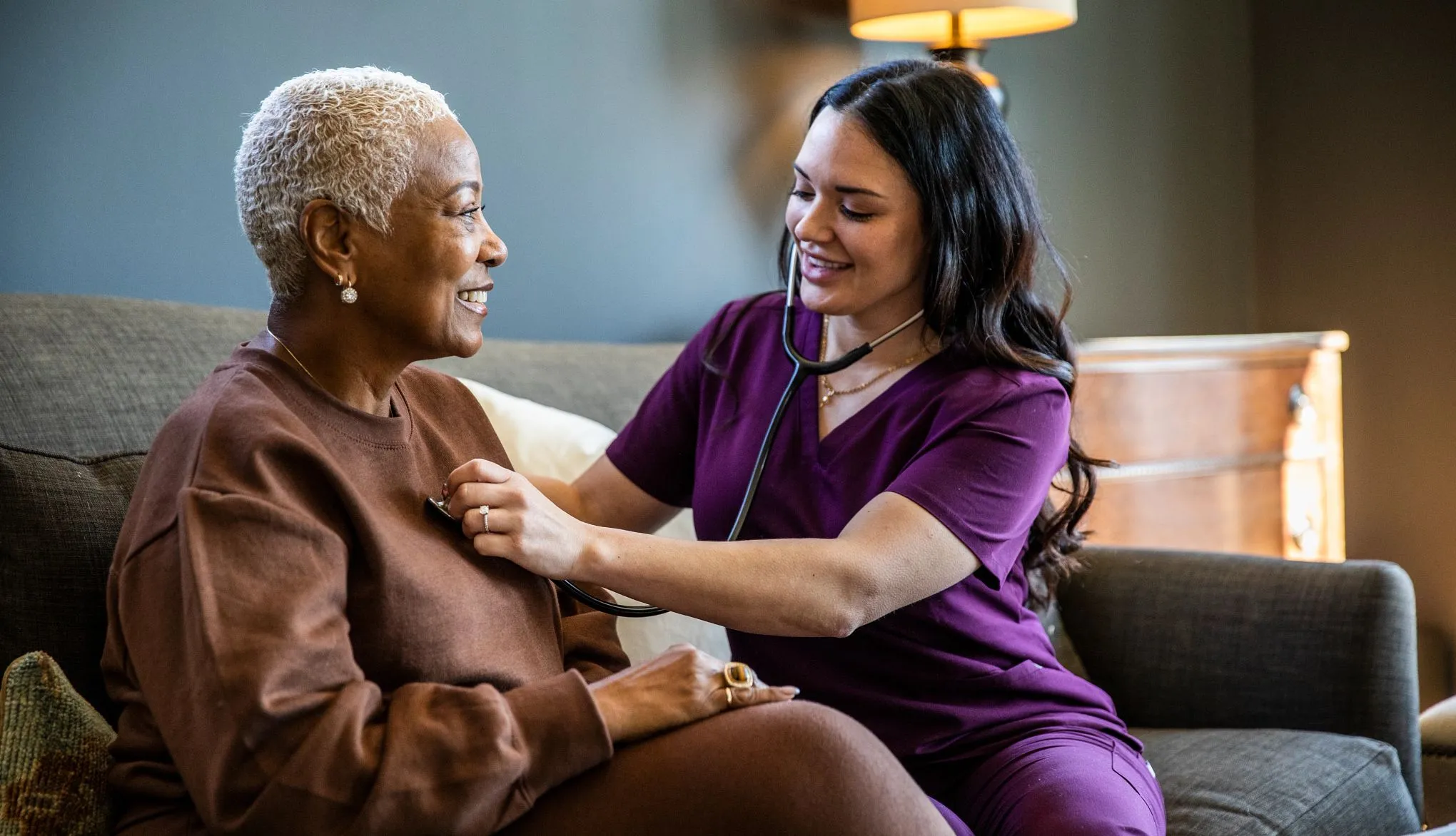
Another benefit of home care for seniors is maintaining their independence and self-confidence. By providing the necessary care in their own home, seniors will be able to independently perform some of their daily activities, which increases their self-confidence and morale and makes them feel good.
Common Challenges When Hiring a Helper for Elderly Care
Nowadays, due to the advancement of technology and the busyness and more employment of women, it has become difficult to take care of the elderly by the family in the same way as it was in the past. In addition, the presence of the elderly in their home when they are sick is one of the things that most families cannot respond to well, because it is almost impossible to meet their mental and physical needs.
Sometimes, due to the inability of the elderly to take care of themselves, they do not allow their children to hire a nurse or caregiver. This problem makes it very difficult for families to provide primary care for the elderly. In addition, after the consent of the elderly parents, another problem that arises for the family is finding an experienced and reliable elderly caregiver to whom we can entrust the most precious ones in our lives. 5 common concerns that families face in hiring a home health care and choosing the right elderly nurse are as follows:
- Ensuring the elderly to accept their inability to perform their duties and the need for care and maintenance
- Finding an experienced and reliable elderly caregiver
- Not being familiar with nursing services and the role of the home care nurse
- How to contract and pay the elderly nurse
- Problems regarding the work process of a home nurse
The Role of the Home Care Nurse at a Glance
| What is the role of a nurse in the elderly? | Description |
| Care for the patient’s physical condition | Checking vital signs such as blood pressure, pulse, body temperature and oxygen levels. |
| Medication management | Scheduling and ensuring correct use of medications according to the doctor’s prescription. |
| Assisting with the patient’s nutrition
|
Preparing appropriate food, helping with eating and monitoring the patient’s diet. |
| Maintaining the patient’s personal hygiene
|
Assisting with elderly bathing, changing clothes, taking care of oral hygiene in the elderly and his/her skin hygiene. |
| Preventing bedsores | Changing the patient’s position in bed, using special mattresses and caring for the skin. |
| Physiotherapy
|
Assisting the patient in walking, rehabilitation exercises or exercises for leg weakness and preventing muscle weakness. |
| Addressing mental and emotional needs
|
Creating a calm atmosphere, talking to the patient and providing psychological support to improve their mental state. |
| Controlling the patient’s pain and discomfort
|
Using pharmacological and non-pharmacological methods to reduce pain and provide comfort. |
| Coordination with the patient’s doctor and family
|
Reporting the patient’s condition to the doctor and informing the family about the patient’s condition. |
| Care for special patients
|
Care for patients with Alzheimer’s, diabetes, heart disease and other chronic diseases. |
| Assisting hospitalized patients at home
|
Change diapers of adults wearing cloth diapers and plastic pants, change dressings and use medical equipment such as catheters and oxygen. |
| Quick response in emergencies
|
Providing first aid and quick contact to medical centers in emergency situations. |
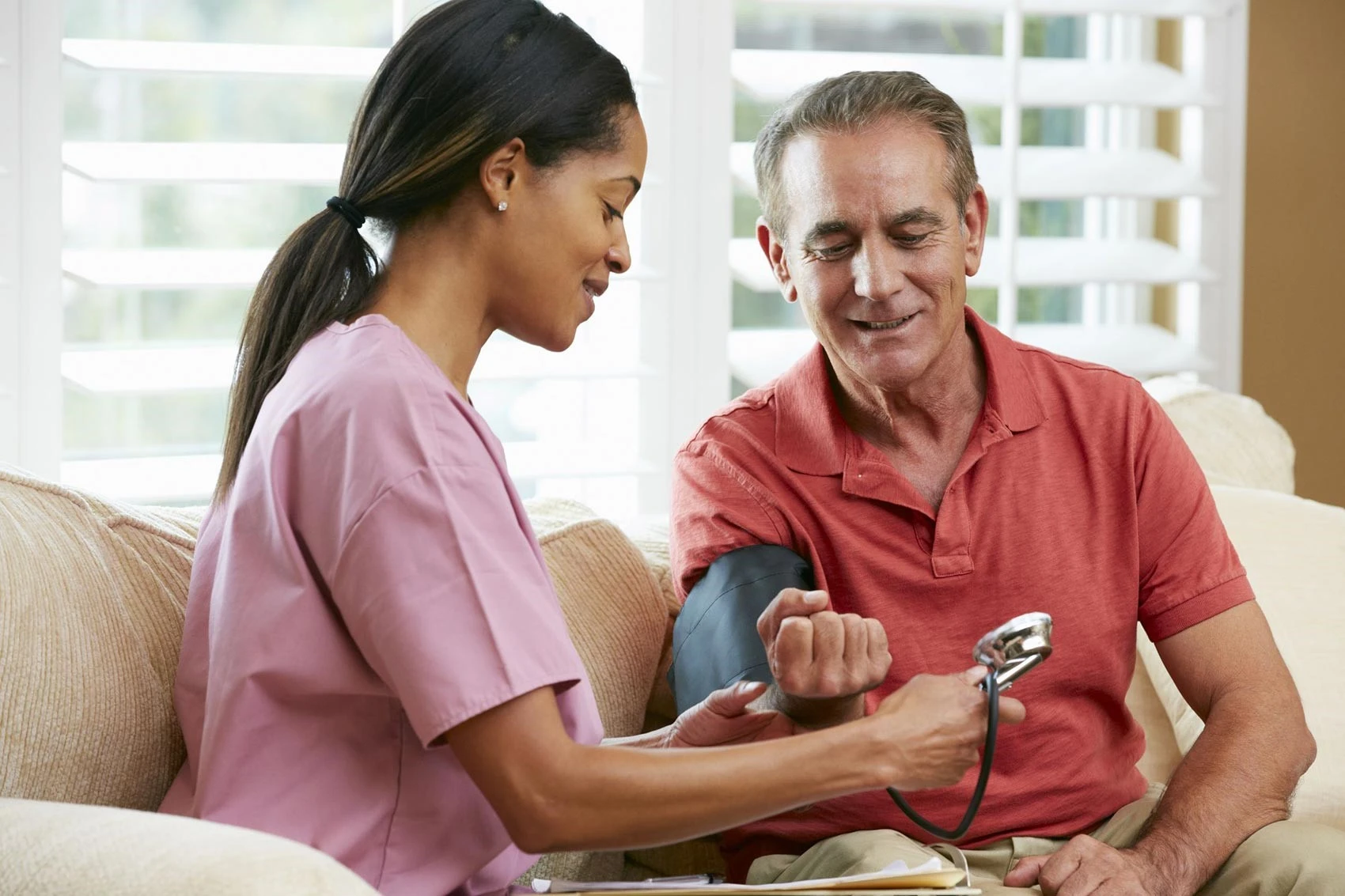
The Role of the Home Care Nurse
The private nurse job description may vary depending on the unique circumstances of each senior; The duties of a home care nurse include close care and monitoring of the physical and mental condition of the senior. Nurses are responsible for providing assistance with daily activities such as nutrition and personal hygiene. The duties of a home care nurse also include creating a calm and safe environment for the senior, providing emotional and spiritual support, and communicating with doctors and family.
In addition, nurses can also perform physical recovery activities such as walks in the park, walks, and special physical exercises with the senior at home. These activities affect the improvement of the senior’s physical condition and help maintain their health and function better. Below are some of the most basic roles that home care geriatric nurses, especially those with paranoia and mental illness, face:
Monitoring the Medical Care of the Elderly
One of the main medical needs of the elderly is continuous care and careful monitoring of their health status. One of the most important services of a geriatric nurse is to check various health indicators, such as blood pressure, heart rate, blood sugar levels, etc.
Nurses’ familiarity with medications and how to take them is also of particular importance. It is the duty of geriatric nurses to ensure that medications are taken correctly and do not interfere with other medications. Also, being aware of the side effects of medications and how to intervene in the event of adverse effects is also among the necessary knowledge for geriatric nurses.
Nursing techniques and skills such as changing catheters, changing wound dressings, performing physiotherapy exercises, assisting with daily activities, etc., require high skill and accuracy. Diaper geriatric nurses must be familiar with these techniques and be able to implement them correctly in order to provide the necessary care to the elderly.
Paying Attention to Chronic Diseases
The elderly are more vulnerable to diseases due to aging and weak immunity, lower levels of antibodies, and the presence of chronic diseases. Therefore, role of the home care nurse in these circumstances is to follow up on chronic diseases so that the elderly can enjoy a better quality of life.
One of the main importance of nurses following up on chronic diseases in the elderly is to prevent the exacerbation and progression of diseases. By providing regular treatment and careful use of medications, monitoring the progression of diseases, and providing necessary advice to the elderly, nurses can prevent the decline in physical abilities and quality of life due to the exacerbation of diseases.
Post-hospital Care
One of the main importance of post-hospital care is to prevent the recurrence of diseases and reduce the risks associated with them. After discharge from the hospital or treatment center, the elderly need regular care and medication on an ongoing basis to fully recover from the disease. Geriatric nurses have the duty to help reduce the likelihood of disease recurrence and accelerate the recovery process by providing appropriate and accurate care.
Nurses have a very important responsibility in caring for the elderly after hospitalization. The home care nurse responsibilities include supporting physical needs, following up on treatment procedures, controlling vital signs, and providing medications and supplements. Elderly caregivers also play an important role in the patient’s exercises and rehabilitation and are responsible for continuous monitoring of their health status. Careful planning of nutrition, wound care, and implementation of daily activities are also considered as geriatric nurse services to help improve and resolve the problems of the elderly.
Another role of the home care nurse, post-hospitalization care, also helps reduce side effects and complications from hospitalization. Due to reduced physical abilities and decreased immunity, the elderly require special care to prevent problems such as seizures, surgical inflammation, bed sores, etc. By continuously monitoring the health status of the elderly and providing professional care, the geriatric nurse can reduce side effects and protect the health of the elderly.
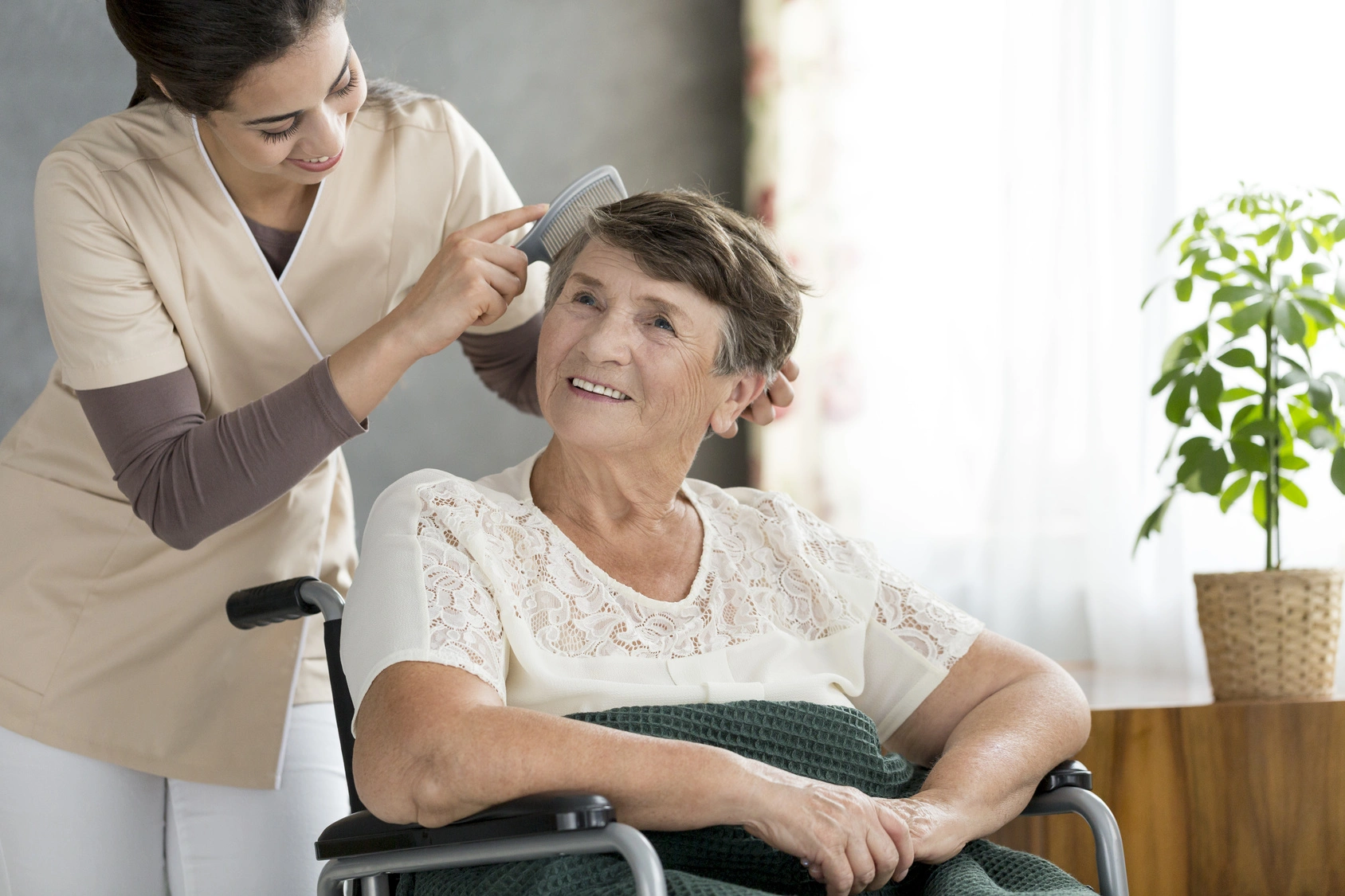
Paying Attention to Personal Hygiene
Personal hygiene is one of the most important aspects in maintaining the health and well-being of the elderly. Due to aging and declining physical abilities, these people need special care in the field of personal hygiene. In the meantime, the responsibilities of home care nurse in personal hygiene are of great importance. The elderly nurse helps the elderly with personal hygiene by performing activities such as helping the elderly go to the bathroom, change clothes, clean the body, etc.
Also, considering the mobility limitations of the elderly, these people can take care of their personal hygiene in the best way with the help of the nurse. In addition to physical hygiene, oral and dental hygiene is also of great importance in maintaining the health of the elderly. By helping with brushing teeth, using mouthwash solutions, and cleaning teeth, the elderly caregiver can prevent oral and dental problems in these people and protect them from possible pain and discomfort.
Taking Care of Healthy Nutrition in the Elderly
Proper nutrition is one of the most important factors in maintaining health and improving the quality of life of the elderly. Due to the physiological and metabolic changes that occur during aging, the elderly need specific nutritional needs. Therefore, one of the main importance of the geriatric nurse’s attention to proper nutrition for the elderly is maintaining proper weight and physical control.
Inappropriate weight loss in the elderly can cause a decrease in physical performance, muscle weakness, and a decrease in the motor abilities of the elderly. Considering the nutritional needs of individuals, geriatric nurses can design appropriate nutrition programs to maintain appropriate weight and proper physical control and prevent the decline in physical performance of the elderly.
Also, proper nutrition plays a vital role in reducing the risk of chronic diseases. The elderly are more susceptible to diseases and infections due to a weak immune system. By improving nutritional status and providing the body with the vitamins and nutrients it needs, home nurses can help seniors prevent chronic diseases such as diabetes, high blood pressure, heart disease, etc.
Special Care for Specific Diseases
Paying attention to the special needs of the elderly with specific diseases is a vital issue in the field of geriatric medicine. One of the main roles of home nurses in senior care is to specialize in palliative care. Elderly people with specific diseases such as cancer or chronic diseases require special attention to be cared for in the best possible way and to be able to live with them comfortably and peacefully.
By providing appropriate care and necessary training to the elderly and their families, geriatric nurses with expertise in this field can reduce the physical and mental damage caused by diseases and help them to experience a respectful and high-quality life alongside their diseases.
Also, expertise in providing neurological and neuropsychiatric care to the elderly with brain and nervous diseases is also among the vital specialties of geriatric nurses. Elderly people with neurological diseases such as Alzheimer’s, Parkinson’s and other brain and nerve diseases require special care to prevent the progression of the disease and to prevent their stress and psychological problems as much as possible. Elderly nursing services in this area can provide appropriate care and close monitoring of the health status of these people.
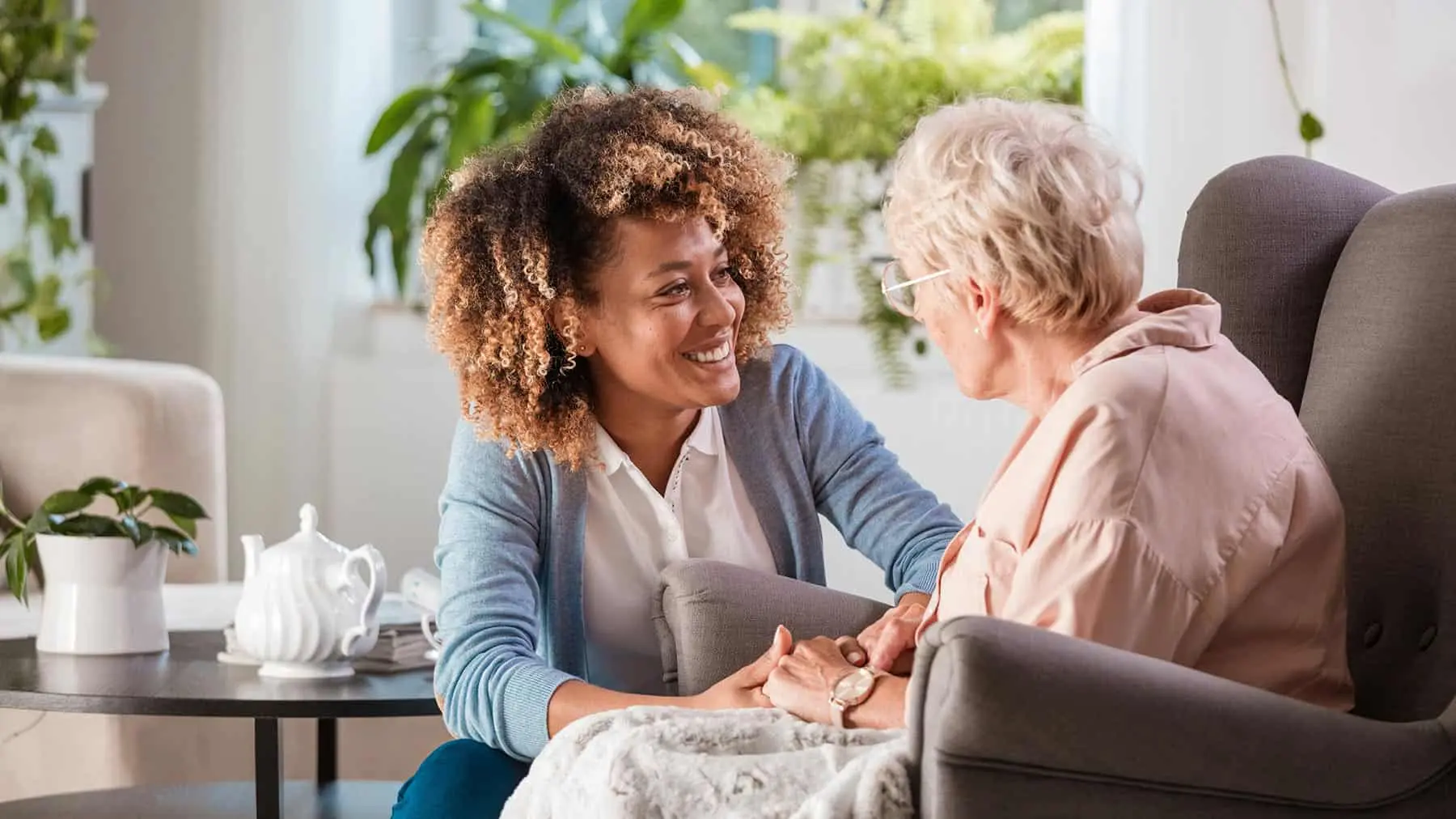
Effective Communication with the Elderly
The elderly require special attention due to their reduced capabilities and the possibility of developing chronic diseases. Therefore, the role of the home care nurse in communicating with these people is very important and can have a great impact on improving their quality of life and well-being. Effective communication with the elderly is a very important and valuable part of the duties of geriatric nurses. The responsibility of the geriatric nurse in this regard is of great importance.
Intimate and respectful communication with these people increases the quality of geriatric nurse services and increases the elderly’s trust and confidence in the nurse. This communication facilitates the improvement of the elderly’s mental health and quality of life and reduces the likelihood of depression and isolation. In addition, through early diagnosis and providing appropriate interventions in dealing with the elderly’s mental problems, nurses can significantly help improve their mental and physical condition.
Effective communication with the elderly can also help improve their mental and emotional well-being. Elderly people may feel lonely and anxious due to their reduced abilities and the possibility of being isolated from society. By establishing compassionate communication, elderly caregivers can strengthen the elderly’s feelings of love and acceptance and help create more social connections. These connections can help increase the elderly’s self-confidence and their optimistic outlook on life.
Creating safety at home
The elderly may face various dangers at home due to their reduced abilities and the possibility of accidents. One of the services of a geriatric nurse is to establish security in the environment through measures that allow elderly people to live without serious risks. One of the basic principles in creating a safe environment for the elderly is to remove obstacles and dangerous items in the home, which includes removing sharp and dangerous objects, moving furniture and objects that can cause the elderly to fall.
It also includes using and installing handles and safety features in the bathroom. Falling for the elderly is one of the sensitive and dangerous issues that can lead to serious injuries and fractures. This risk is greater in elderly people who have less physical abilities and balance. One of the most important ways to prevent falls in the elderly is to have a geriatric nurse monitor and accompany them continuously. Elderly caregivers and families should be present with the elderly on a regular basis and help them with daily activities.
The use of assistive devices such as safety harnesses, canes, and walkers can also help improve the elderly’s balance and reduce the risk of falls. Performing dynamic balance exercises for seniors, such as walking exercises and using a balance board, will also be useful in increasing the elderly’s balance and independence.
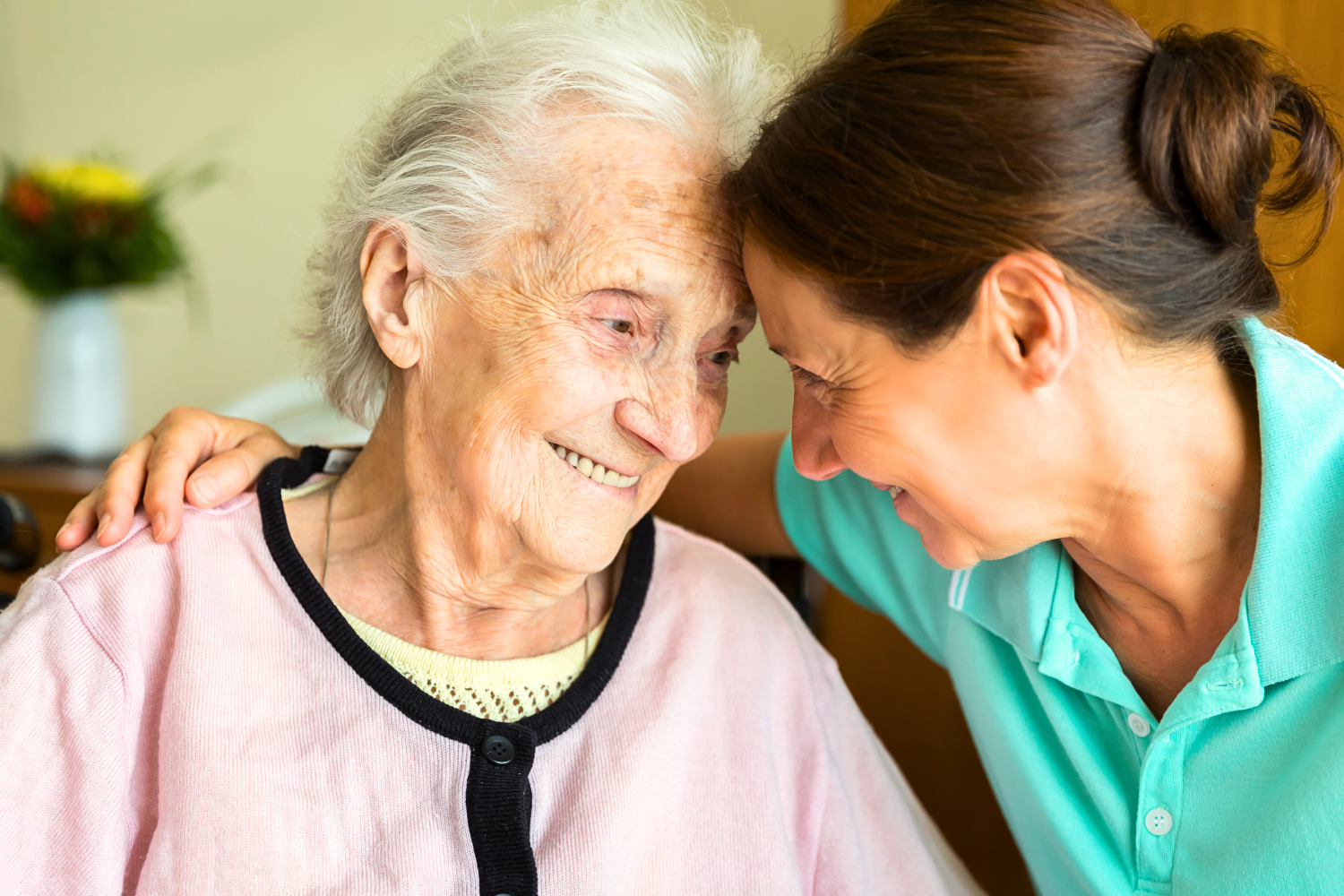
Improving the Mental Health of the Elderly
The mental health issues in elderly is as important and vital as physical health and requires special attention and care. One of the most important services of a geriatric nurse to maintain the mental health of the elderly is a warm and compassionate relationship with them. By creating an intimate and lasting relationship with the elderly, geriatric nurses can convey to them a sense of importance and value and prevent feelings of loneliness and isolation in the elderly.
Also, a geriatric caregiver, as a person present with the elderly, must listen to the needs, problems, and pains of the elderly and help them by providing the necessary support. If you do not want a 24-hour nurse, it is important that the nurse’s place of residence is close to you.
Recreational Activities
Recreation and entertainment are important and essential parts of life, and they are also very important for the elderly. Doing appropriate recreational activities helps the elderly to enjoy life, feel happier and more satisfied, and helps maintain mental and physical health. The connection of the elderly with their peers in recreational environments provides an exceptional opportunity to create a sense of social belonging and increase the self-confidence of the elderly. It also increases their motivation and cheerfulness, and prevents feelings of isolation and sadness.
Emotional Support
Geriatric nurses play a vital role in maintaining the mental health of the elderly. One of the role of the home care nurse is to provide close communication and emotional support to the elderly, which can help create a sense of security and calm in the elderly and prevent the development of mental problems. One of the most important ways in which nurses can provide emotional support is to listen to the elderly with full concentration. They should ask the elderly what their feelings and needs are and respond appropriately to them.
Encouragement and praise are other effective methods in providing emotional support to the elderly. Nurses can motivate the elderly to perform various activities and tasks. As we have said, recreational activities can help the mental health of the elderly. Nurses can encourage them to participate in recreational activities such as reading, painting, planting flowers, and being with peers in parks. Ultimately, this intimate connection and psychological support for the elderly can bring them closer to a sense of satisfaction and happiness and make their lives better and more meaningful.
The Role of Home Care in Promoting Long-Term Wellness for Seniors
Many healthy elderly people are always thinking about their health and well-being, but sick elderly people such as Alzheimer’s patients may forget or not care about meals or what is beneficial and harmful to them. The vital role of caregivers in senior home care is to observe the health of nutrition and the elderly’s diet.
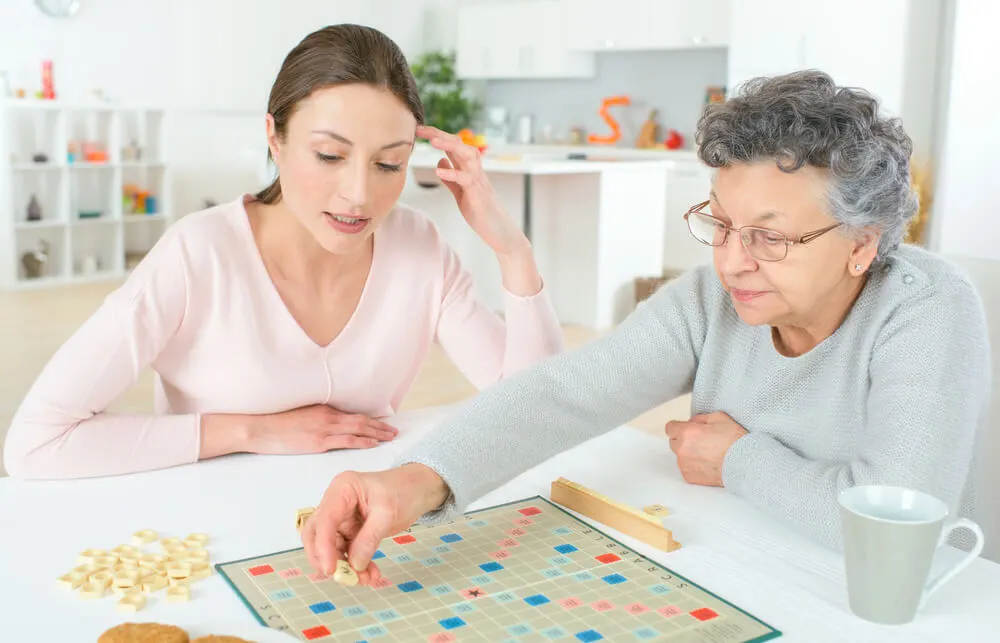
The multiple diseases of an elderly person have caused them to have a more special nutrition and diet. Providing the body with energy, paying attention to metabolism, weight control, reducing stress and anxiety, improving and increasing bone density, consuming appropriate snacks and nuts, etc. are all issues that should be observed in relation to elderly people.
Elderly caregivers provide an opportunity for family members to rest and reduce their stress. They can also help with specific responsibilities. The duties of a home care nurse include helping with bathing, preparing food, transportation, light housework, etc. In addition, they accompany the elderly in their favorite activities. As results, the main goal of home care providers is to help maintain the emotional and mental health of seniors and their families.
The Role of the Home Care Nurse for the elderly with dementia
Dementia is one of the common medical problems in the elderly, which reduces the mental and executive capabilities of the individual. This disease can be a great challenge for the individual and his family. Due to the characteristics of the disease, the care needs of the elderly with dementia are different and specific. In the meantime, the responsibility of geriatric nurses in providing appropriate and specialized care to these people is very valuable and vital.
Expertise in dealing with dementia care for elderly quality of life is also another vital task of geriatric nurses. People with dementia may face severe changes in personality and behavior that may be difficult for themselves and their families. Nurses with expertise in this field know the best ways to communicate effectively with people with dementia and can provide appropriate solutions to manage behaviors caused by the disease. Also, creating a kind and intimate relationship with these people can convey a greater sense of security and peace to them.
The services of geriatric nurses for elderly people with dementia include the ability to manage psychological and behavioral problems caused by the disease. Nurses specializing in this field can diagnose behavioral problems of elderly patients and provide appropriate solutions to manage them. Also, providing necessary advice to families to better manage behaviors caused by the disease is also one of home care nurse duties.
Concluding Remarks
It is best to keep the following points in mind when hiring to ensure that the role of the home care nurse is performed correctly:
- Be sure to note that the nurse you are considering has relevant work experience in the field of elderly care.
- Paying attention to the nurse’s degree is also important, nurses with a nursing degree are hired for more specialized services, while completing rehabilitation courses is sufficient for common elderly care services.
- The institution from which you receive nursing services must be reputable and have support; especially if you have hired a full-time elderly nurse, it is better to consider round-the-clock support.
- The nurse’s size and physical strength should be consistent with her duties. For example, if your elderly person has mobility problems, keep in mind that the petite nurses may not be able to move the elderly person around.

Frequently Asked Questions
How much does a home care nurse earn?
Since the type of services that a home care nurse provides varies depending on various factors, it makes sense that their salary will also vary.
What is the role of the home care nurse?
Paying attention to medical needs, elder care programs, meeting basic needs, companionship, doing light household chores, paying attention to medication, paying attention to meals, helping the elderly move
Is a home care nurse better or a nursing home?
Since the cost of a reasonable nursing home is equal to a home care nurse, a home care nurse is definitely much better.
What is one of the most important benefits of home care for the elderly?
Maintaining their independence and self-confidence, which is formed by providing the necessary care in the elderly’s personal home environment. The elderly can independently perform some of their daily activities, which creates more self-confidence and morale in them.
